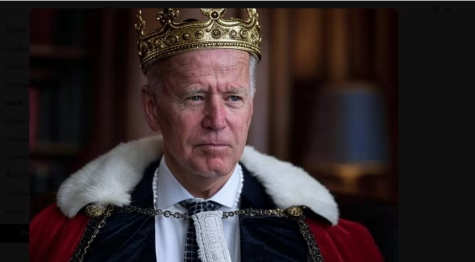
WASHINGTON—In an unprecedented display of executive power, outgoing President Joe Biden issued a sweeping series of pre-emptive pardons just hours before President-elect Donald Trump is set to take the oath of office. Critics argue this bold move shatters the spirit of justice, exposing a “Never Trump” privilege that even monarchs and emperors dare not invoke.
Check out what Alex Jones had to say about it:
The pardons shield several high-profile figures, including Dr. Anthony Fauci, retired General Mark Milley, and members of the House committee that investigated the January 6, 2021, Capitol riot. Biden defended his decision, calling it a necessary step to protect public servants from “politically motivated retribution” under the incoming administration.
“These individuals served the nation with honor,” Biden declared in a statement. “I cannot in good conscience allow the rule of law to become a weapon of vengeance.”
Yet, critics contend the move reeks of self-preservation, with Sen. Ron Johnson (R., Wis.) questioning on social media, “What criminal activity is Biden afraid these people might be charged with?”
A Presidential Gambit
The pardons, issued in Biden’s waning hours, raise eyebrows across the political spectrum. Among the most controversial recipients is Fauci, who became a polarizing figure during the COVID-19 pandemic. While hailed by Democrats as a public health hero, Fauci faced sharp criticism from Trump and his allies for his advocacy of strict lockdowns and opposition to treatments Trump touted.
Retired General Mark Milley, who clashed repeatedly with Trump, also received clemency. Milley had been accused of undermining Trump during his presidency, with Trump recently suggesting Milley committed treason. Milley, in turn, branded Trump a “wannabe dictator” in his retirement remarks—a sentiment Biden seemingly endorsed by shielding Milley from potential prosecution.
The pardons extended to several police officers and lawmakers tied to the January 6 investigation, including vocal Trump critics Liz Cheney and Adam Schiff. Biden’s sweeping action ensures these figures remain untouchable, sparking outrage among those who view the move as a preemptive admission of guilt.
A Legacy of Controversy
Biden’s last-minute pardons follow a pattern of contentious clemency actions. Last year, he pardoned his son, Hunter Biden, over tax and gun charges—an act that drew bipartisan criticism and fueled allegations of favoritism.
“Joe Biden’s presidency began in chaos and ends in gangster-style lawfare,” said former Trump adviser Steve Bannon. “This final act confirms what we’ve all suspected—he’s protecting those with something to hide.”
Comparisons to controversial pardons from past presidents, including Bill Clinton’s pardon of Marc Rich and Barack Obama’s commutation of Chelsea Manning’s sentence, have surfaced. However, critics argue Biden’s blanket clemency is unparalleled in its scope and timing, particularly as it comes on the eve of a presidency determined to hold the powerful accountable.
The Reaction
The pardons have sparked fierce debate. Trump’s team criticized Biden’s action as an abuse of power designed to shield political allies from justice. The left’s Legal analysts, however, point out that preemptive pardons are rare but not illegal, even if they skirt the bounds of ethical governance.
As Biden exits the stage, he leaves behind a nation deeply divided. His final move cements his legacy as a leader willing to gamble with the rule of law to shield his allies.
For Trump and his supporters, this marks a rallying cry for accountability. “This isn’t the end,” Trump told reporters. “It’s only the beginning. The American people deserve the truth.”
With Biden’s pardons fueling already fierce political tensions, the nation braces for a turbulent chapter as Trump prepares to take office. For many, the question remains: Has Biden saved the rule of law, or has he shattered it beyond repair?
